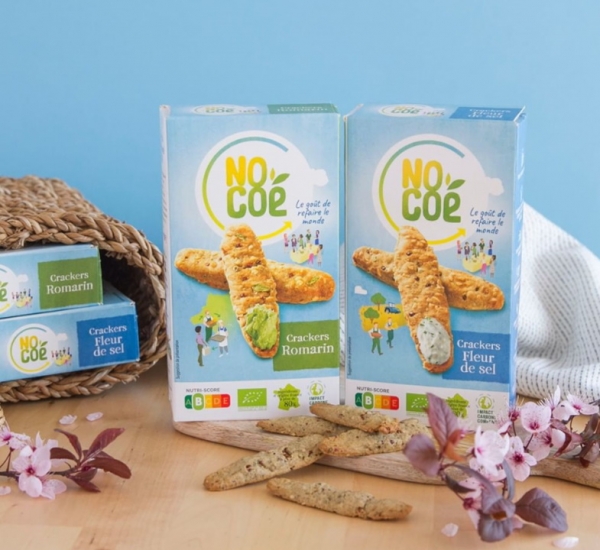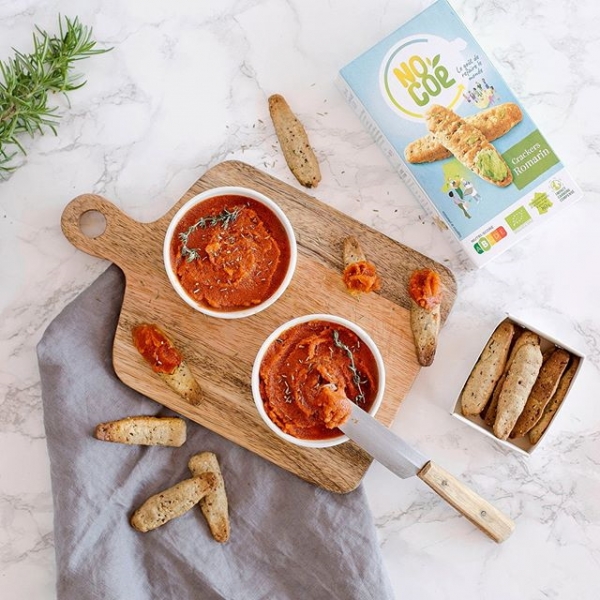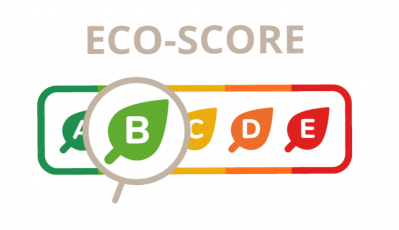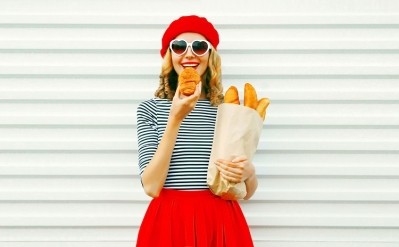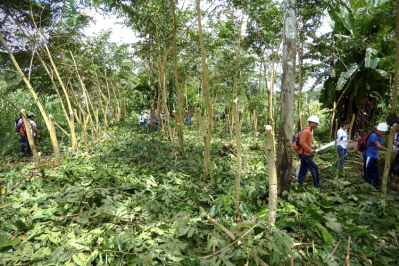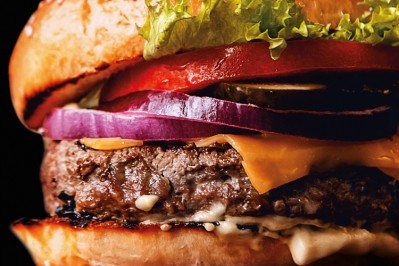Meet NoCOé: Mondelez’s first carbon neutral snack brand
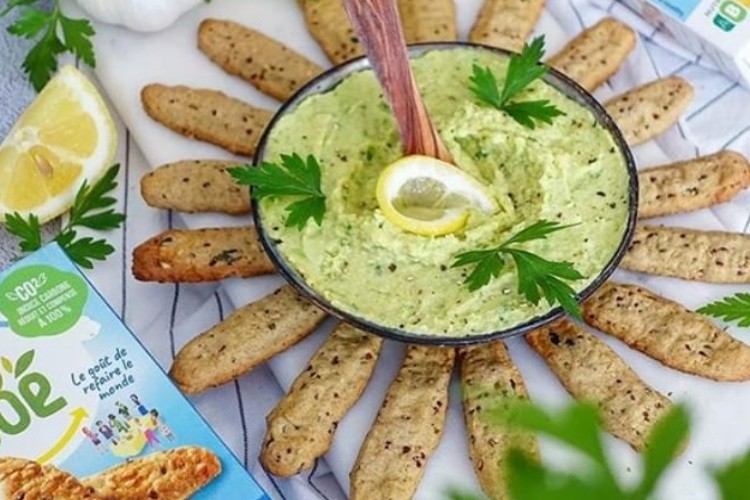
NoCOé was developed by Mondelez International’s SnackFutures, an innovation and investment vehicle that aims to capitalize on emerging trends to build and grow smaller brands with large-scale potential. It is the first cracker brand produced by Mondelez that delivers a carbon neutral snack.
“We see consumers moving away from the traditional three meals a day and towards snacking. We also see that consumers are increasingly concerned about sustainability and, within that, climate change really stands out as an important issue for them,” SnackFutures PMO Benjamin Pflieger explained.
“This is why we decided to start NoCOé focused on climate change. To snack-ify climate change,” he continued.
“We wanted to prove that sustainability matters to consumers and that they are looking for ways that their actions can have an impact. We’ve tried to translate climate change into something understandable for them and this is why we have focused on carbon footprint. It is something the consumer could link to.”
Good nutrition is an important hallmark of the crackers, which are free from preservatives and additives and offer a source of fibre and plant proteins. The crackers are low in sugar, saturated fat and salt and have been awarded a green NutriScore rating of 'B'.
NoCOé contains plant-based ingredients that contribute to ‘dietary diversification’ and are nutritionally dense, such as spelt flour, hemp, red quinoa and pumpkin seeds.
SnackFutures decided to initially test the brand in the French market, where the ‘aperitif occasion’ is a popular snack for millennials and the ‘climate generation’. “We launched in France because there was a higher readiness for a brand with a distinct proposition around sustainability,” Pflieger revealed, noting that the ‘younger generation’ of snackers here are seeking out ‘values’ and ‘purpose’ in the brands they buy.
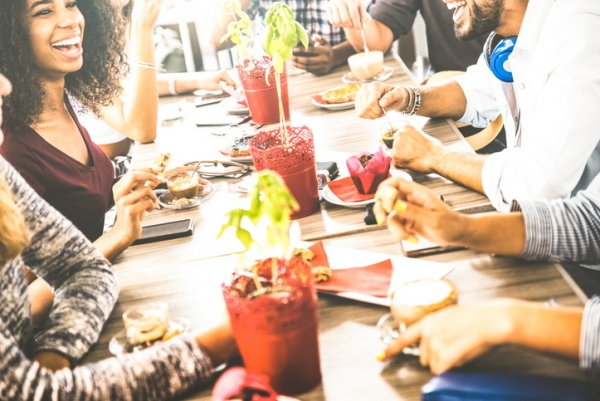
Crafting a carbon neutral cracker
A dual-pronged approach was taken when developing NoCOé’s carbon calculation, which combined efforts to produce a snack with as small a carbon footprint as possible with the use of carbon credits to offset any remaining impact.
“NoCOé is by design a low impact product,” Pflieger elaborated. “As well as production and manufacturing, this is about the choice of ingredients. We use local, organic ingredients, in this case meaning French.”
NoCOé, which launched its ‘test and learn’ of three aperitif crackers in France last year, contains 95% organic ingredients, 80% of which are locally sourced and processed. A ‘shorter supply chain’ consisting of ‘local supply close to the point of production’ reduces the carbon footprint of the end product, Pflieger noted.
As well as reducing carbon impact, local sourcing is a message that resonates with French consumers. According to Statista, 83% of French shoppers say they prefer to buy food products made in their country.
The NoCOé carbon calculation takes into account the ‘end-to-end’ footprint, starting with the supply of raw materials, then manufacturing, storage, transport to shelf and sale to the consumer.
“Low carbon by design is also about the packaging we use,” Pflieger continued.
Here, the brand has to balance different concerns. On the one hand, packaging needs to be safe, preserve food and avoid spoilage, qualities that traditional plastic food packaging has in spades. But the end-of-life also needs to be taken into account.
To address challenges around single-use-plastics and recyclability, NoCOé opted for cardboard packaging with a biodegradable film that can be composted at home. “We hope home composting, which is a growing trend in France, will continue to be picked up by consumers.”
These efforts don’t mean that NoCOé has zero carbon footprint. But the carbon emitted in scopes 1, 2 and 3 of the cracker’s chain are measured, calculated and then offset. “Any FMCG product that has to be produced and transported will have some carbon footprint. We offset any impact that we do have with our partner Reforest’Action, buying carbon credits and basically planting trees. In the mid-term our intent is to develop our own specific programs,” Pflieger explained.
Consumers buying into sustainability
For a business to be sustainable it has to be good for the planet. But it also has to be profitable.
NoCOé was an opportunity to test whether carbon neutral messaging really resonated with consumers. The brand targets ‘millennial eco conscious consumers’, many of whom report that they expect food brands to act on sustainability and are willing to pay a premium for it. “But we didn’t know,” Pflieger stressed.
“We wanted to know if consumers are really ready to pay more through a process of transactional learning… We want to position NoCOé as mainstream and affordable – but the brand is at the higher end of that [price point].
“We looked at price but also messaging and communications. We found hashtags linked to carbon gained higher traction on social media, particularly Instagram.”
NoCOé proves that environmental concerns really do feature in the hierarchy of consumer needs, Pflieger believes.
“There are things consumers won’t compromise on. Taste is always number one with food. The price point and convenience are also important… We have shown that after taste, planet can be number two for consumers [as the second most important purchase motivator].”
Building the brand and leveraging learnings
NoCOé’s three varieties - Sea Salt, Rosemary and Chili - are currently available in Franprix locations as well as some independent and online retailers, including Smartfooding and Cometeshop. After seven months of ‘consistent growth’, it is preparing to scale up across more distribution points with an ‘evolved line-up’.
“Our objective is to grow and scale the brand,” Pflieger told this publication. “The next stage is to optimise the proposition and maximise distribution in France. We plan to expand distribution.”
Innovation is also on the cards: “I can’t say too much about it, but we are working on innovation to expand the portfolio,” the Mondelez SnackFutures executive hinted.
Ultimately, Mondelez's SnackFutures could look at entering new markets with the proposition. “In the mid-term we may look to expanding into other markets, possibly in western Europe,” Pflieger revealed.
But, importantly for the multinational snack giant, NoCOé is an experimental brand whose learnings can be leveraged to help build increased sustainability into its global proposition.
“Climate change is a broad topic. There is a growing awareness among consumers – but also regulators and policy makers – that food production plays a big role. For Mondelez, we have a big responsibility and also an opportunity,” Pflieger commented.
Mondelez has set itself the objective of a 10% reduction in CO2 emissions by 2025 versus 2018 baseline.
“Through the corporate lens, the motivation behind SnackFutures is that Mondelez is trying to grow by looking at incremental innovation… SnackFutures is about creating brands but also building capabilities.”
Not all of Mondelez’s business can be low-carbon 'by design' as it works to reduce the impact of legacy brands. However, the snack group will be able to leverage the size and reach of its blockbuster brands to help cut the food chain’s contribution to climate change, Pflieger predicted. “With Mondelez’s much larger brands smaller changes can have a much larger impact because of their scale,” he noted.
So, what are Pflieger’s top tips for creating a low-carbon brand?
“The first is to develop plant-based products, because we know that meat and dairy have a much greater footprint.
“Then you have to look at where the ingredients come from, the origin. This sits alongside production location – so we are sourcing and producing our products in France, where they are consumed. Having a short food chain is important.
“Then you have to think end-to-end, which means you also have to consider packaging, recyclability and end-of-life.
“In the mid to long term, I believe new solutions around how we farm and produce food will emerge.”
